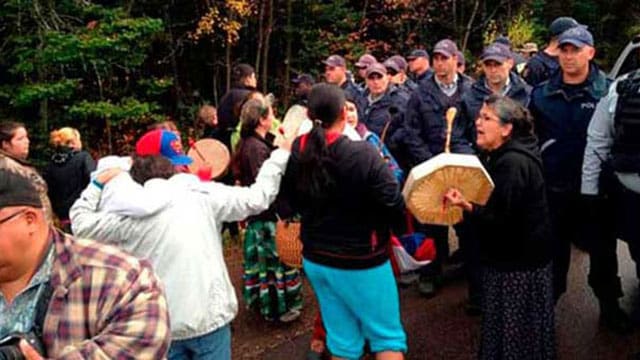DRIPA rewrites laws without public input or approval
By Geoffrey Moyse
In 2019, British Columbia’s NDP government passed the Declaration on the Rights of Indigenous Peoples Act (DRIPA). The primary goal of this legislation was to create a secretive bilateral approach between Indigenous peoples and the government to amend all provincial laws to align with the 46 Articles of the United Nations Declaration on the Rights of Indigenous Peoples (UNDRIP).
UNDRIP, endorsed by the United Nations in 2007, outlines the fundamental human rights of Indigenous peoples globally. Initially, the Canadian government had concerns about how certain rights in UNDRIP would interact with Canadian constitutional and domestic law. For instance, there was uncertainty about the practical implications of the requirement for “free, prior, and informed consent” in Article 32. Despite these concerns, the Trudeau government endorsed the Declaration in 2016.
It’s important to note that an international Declaration is neither international law nor, at present, domestic law in Canada or British Columbia. While the adoption of UNDRIP’s “minimum” Indigenous human rights standards might be welcome in some countries, it conflicts with Canada’s well-developed legal system, including a balanced constitutional approach to Aboriginal rights and title.
For example, Canadian Supreme Court case law defines how Aboriginal title is proven in court, requiring sufficient, continuous, and exclusive occupation by a First Nation before European sovereignty. Occasional land use that doesn’t meet this standard might support a claim to Aboriginal rights but not to land or resource ownership. In contrast, Article 26 of UNDRIP states that “Indigenous peoples have the right to the lands, territories, and resources which they have traditionally owned, occupied or otherwise used,” without requiring proof of exclusive occupation.
Additionally, while Canadian law does not require Aboriginal consent for government decisions about lands and resources with unproven Aboriginal claims, UNDRIP mandates that consent is always necessary for government projects affecting Indigenous land rights (Article 32(2)).
DRIPA commits the BC government to align all its laws with this non-legally binding international declaration, which presents Indigenous rights as absolute. This alignment process has been designed to exclude input from the general public of British Columbia, who constitute 94 percent of the province’s population. Instead, it has become a secretive process handled by bureaucrats who interpret UNDRIP’s Articles themselves, engaging only in bilateral discussions with Indigenous communities and excluding public involvement.
In contrast, Canada’s constitutional law provides a balanced framework that considers the rights of the larger Canadian society, ensuring a fair balance between Aboriginal rights and the overall public interest. DRIPA’s pursuit of aligning provincial laws with absolute Indigenous human rights does not fit within a constitutional framework that balances the rights of all Canadians and British Columbians, both Aboriginal and non-Aboriginal.
The sooner DRIPA is either repealed or constitutionally challenged, the better. Canadian law already offers an elegant and balanced framework for reconciliation, making DRIPA and UNDRIP irrelevant in this context.
Geoffrey S. Moyse is a retired senior lawyer who served as legal counsel to the Province of BC, advising six successive governments on Aboriginal law over 30 years.
For interview requests, click here.
The opinions expressed by our columnists and contributors are theirs alone and do not inherently or expressly reflect the views of our publication.
© Troy Media
Troy Media is an editorial content provider to media outlets and its own hosted community news outlets across Canada.


